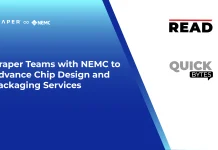Cordis, a global leader in cardiovascular technologies, announced the first-in-human use of the Radianz Radial Peripheral System by Jihad Mustapha, MD, FACC, FSCAI at Advanced Cardiac & Vascular Centers (ACV) in Grand Rapids, Michigan.
Also Read: NICE Recommends Use of Hansa Biopharma’s Idefirix As Desensitization Treatment
The Radianz Radial Peripheral System™ solution includes BRITE TIP RADIANZ™ Guiding Sheath used to optimize lower extremity lesion access, the SABERX RADIANZ™ PTA Catheter to facilitate treatment, and the S.M.A.R.T. RADIANZ™ Vascular Stent System to help maintain patency for lasting favorable outcomes.
Radianz Radial Peripheral System™ is purposely engineered for radial access, which is proven to produce fewer vascular complications and higher patient satisfaction than femoral approaches.
According to Dr. Mustapha, Chief Executive Officer and Director of Endovascular Intervention at Advanced Cardiac & Vascular Centers (ACV) for Amputation Prevention, “My colleagues at ACV and I are pleased to have successfully performed the first procedures using the Radianz Radial Peripheral System™, said Dr. Mustapha. “We believe this portfolio represents true innovation in meeting the need for radial access solutions for lower extremity intervention.”
Dr. Jihad Mustapha is recognized throughout the world as a pioneer for his groundbreaking work in critical limb ischemia, or CLI, which is marked by the severe obstruction of arteries, drastically reducing blood flow to the extremities. Left untreated, CLI can result in amputations.
“We are extremely pleased with the positive feedback from Dr. Mustapha and proud that these first-in-human cases were performed so successfully and by such a highly esteemed physician,” said Cordis CEO Shar Matin. “When used as a comprehensive treatment solution for vascular disease, we believe the unique capabilities of the Radianz Radial Peripheral System™ have the potential to positively impact outcomes and improve quality of life for patients.”
Multiple studies have demonstrated overwhelming patient preference for radial versus femoral access. An 85% reduction in access site complications and reduction of major bleeding by 73% give insight into the 80% patient satisfaction rate.
Studies show that patient ambulation time can be reduced from hours to minutes, and patients experience improved mobility and comfort from the outset. Radial approaches provide post-procedure complications of less than 1% compared to 2% to 4% with femoral access.




